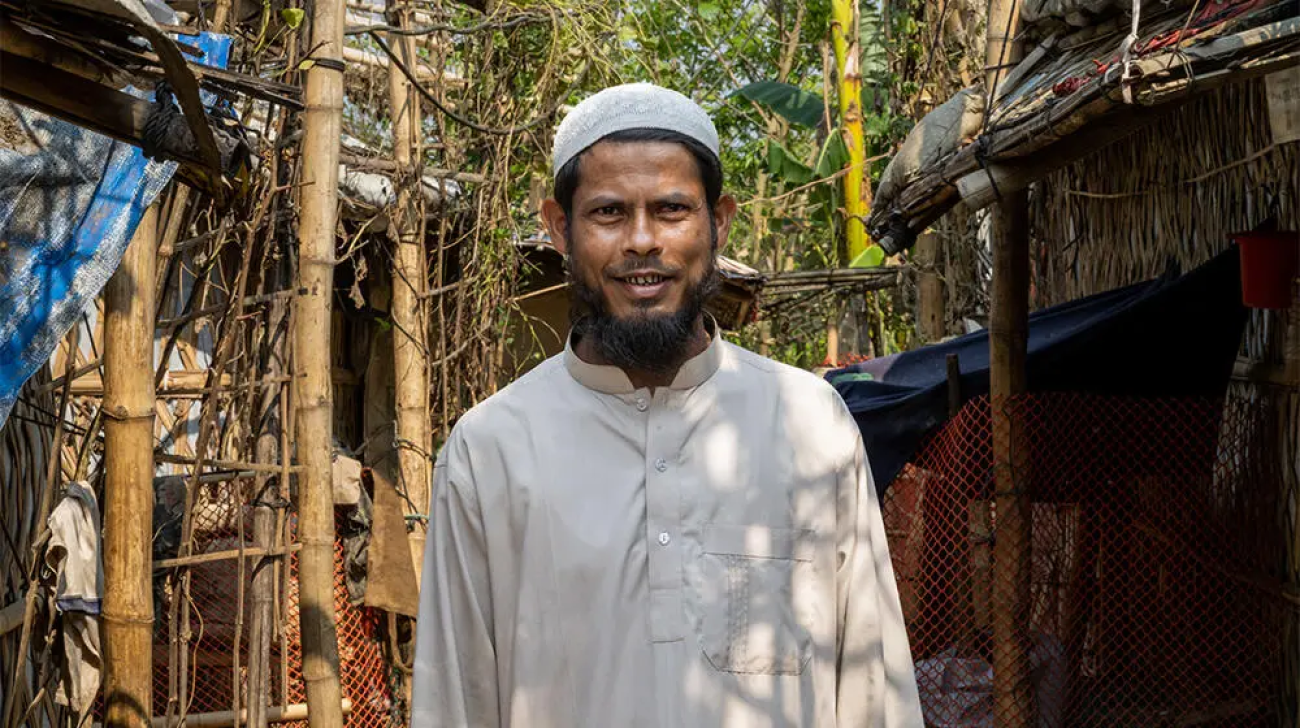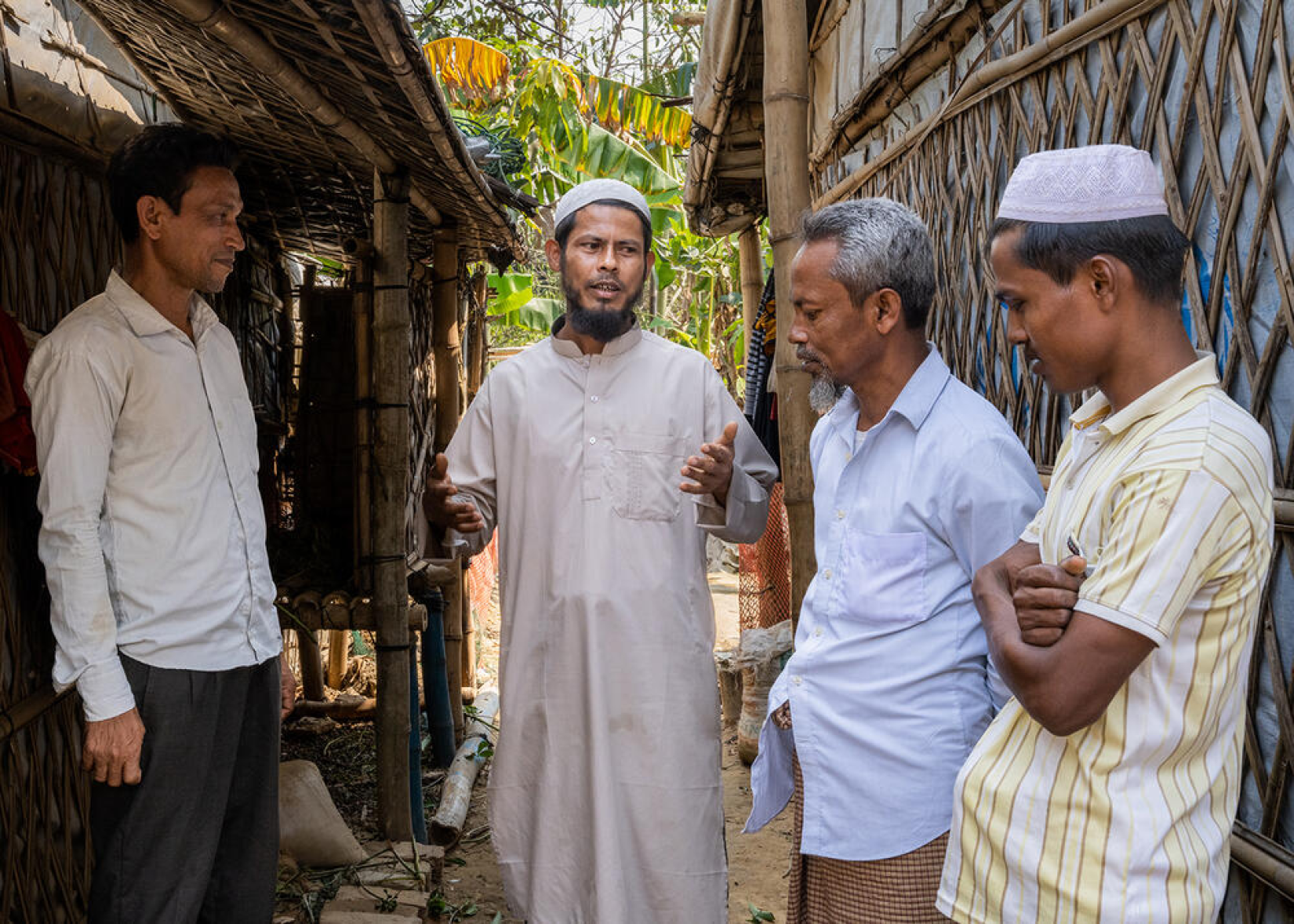A Search for Faith, Justice & Equality

25 September 2024
It has been seven years since Nurul Kabir arrived at one of the refugee camps in Ukhiya, Cox’s Bazar. He is now 30 and has recently welcomed his firstborn.
In many ways, his fate was decided during his younger years, which were marked by a search for faith. At eight years old, Nurul Kabir found his place at a madrasa and spent the next decade immersing himself in Islamic theology. Even though years have passed since his graduation, and he now leads prayers as a respected Imam, a quiet fire for knowledge continues to burn inside him.
When he first arrived at the camp, Nurul was struck by the flurry of activity from NGOs and activists, raising awareness about harmful social and gender norms. The mosque yard itself often served as a platform for these awareness sessions. It piqued Nurul's curiosity, and he began to see this as another way to fulfil his calling: to guide his community toward a just and equitable life free from discrimination, injustice, and ignorance. It was not a deviation from his religious duties; instead, he saw it as an integral part.
As Imam and community leader, Nurul feels a strong responsibility to keep faith adaptable to the ever-changing world – free from rigid interpretations of religious texts and their distortions through harmful social norms.
To fulfil his mission, Nurul became a regular at awareness-raising sessions targeted at religious leaders held by various local organisations. He started digging further into his studies, realising the potential of spiritual teachings to transform harmful norms. This quest ultimately led him to the Health and Gender Support Project – launched in Cox’s Bazar by the government of Bangladesh with World Bank’s funding and UNFPA's technical support in 2021.
Soon after, he dove deeper into community outreach, becoming an ambassador for gender equality.

“I have gone from door to door, explaining both the value and the contributions of women and girls. I keep telling people that if women work as presidents and prime ministers these days, why can’t your daughter be one of them someday? I try to make them see through my sermons that men and women are equal in the eyes of Allah,” he explained.
“I have stopped nine child marriages in our camp so far,” Nurul said as a matter of fact.
In his daily sermons, Nurul also promotes sexual and reproductive health education among men and boys, urging them to share what they have learned with their families and friends.
Often, he faces resistance to his views. People regularly quote or misquote scripture to justify limited rights for women and girls. But far from being discouraged, he welcomes these debates. “I find it very healthy to have these conversations openly. I don’t shut them down. It gives people a chance to think about where their notions come from instead of just getting easily riled up and defensive, which helps no one,” he noted.
Nurul believes his mission would be complete when educating girls, ensuring their participation in the workforce and politics, and ensuring their freedom to move about safely in public spaces are not even considered remarkable—they are simply the norm.
Until then, his mission continues.





